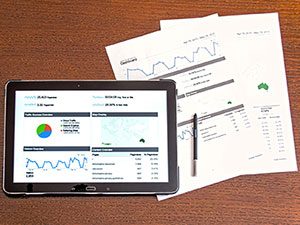 Personal medical information embodies some of the most sensitive and vital information an individual could possess. This data is important for ourselves, our family, co-workers, and friends, and, unfortunately, even in critical times (like during a global pandemic) there are those out there who hope to take advantage and steal this data for personal gain. Keeping your healthcare data safe from cybercriminals should be taken very seriously as this data contains information that could financially hurt you if it falls into the wrong hands.
Personal medical information embodies some of the most sensitive and vital information an individual could possess. This data is important for ourselves, our family, co-workers, and friends, and, unfortunately, even in critical times (like during a global pandemic) there are those out there who hope to take advantage and steal this data for personal gain. Keeping your healthcare data safe from cybercriminals should be taken very seriously as this data contains information that could financially hurt you if it falls into the wrong hands.
Utilizing a company security policy and working with IT experts from a managed IT services company, like Natural Networks, can help ensure this data is kept safe for you and your employees.
Best Security Practices for Handling Your Medical Data
According to HIPAAJournal.com, from 2009 – 2019 data breaches in the medical field have increased from as few as 18 cases in 2009, to more than 500 in 2019. The amount of records that have been exposed is astronomical, with 2015 being the worst year in history for breached healthcare records exceeding 113.27 million records exposed in the United States alone! Security experts believe this trend will only continue to grow as hackers and cybercriminals continue to target medical data.
Some of the most common security measures that you can implement to protect the medical data for you and your staff are often some of the most routine. Using a complex password that is unique and that you don’t use for anything else can help protect medical data you keep with your healthcare provider and health insurance company. Many medical providers offer two-factor authentication when logging into your account online as well. Enabling the two-factor authentication will ensure that you are the only one logging into your online medical accounts.
Making sure you are well-aware of phishing emails and how to spot them is also a great way of protecting medical information. Cybercriminals will often send emails that look like they are from your medical provider requesting information that could compromise your data. You should never respond to an email requesting information or password changes unless you specifically requested it from your medical provider. If you are unsure, contract your medical provider using the phone number they original provided you or on the back of your member ID card they issued.
Implementing Security Changes to Protect Your Data
It's important that we implement the right security measures to ensure that our medical data and that of our business do not fall into the wrong hands. Recognizing common attack vectors like phishing emails, compromised websites, and keeping antivirus software up-to-date can go a long way in preventing important data loss.
Individual computers and servers that may contain important medical information about you or your employees should always be password protected, and the data should be encrypted so that it is unreadable if accessed by unauthorized persons. It’s also important to ensure that each employee maintains their own unique, strong password when accessing their computers or medical information, like a healthcare provider’s website. Utilizing password managers, like LastPass or Roboform, can help generate strong passwords and assist you with using them to login to sensitive websites online.
Implementing these password and security policies may take extra time, but it is worth it to prevent potential data loss that could lead to significant financial loss for an individual or business. Working with a managed IT solutions provider, like Natural Networks, can help ensure that you have the right security methods in place and are taking the proper precautions to keep your data safe. If you want to learn more about how managed IT services can benefit you, give us a call today!



